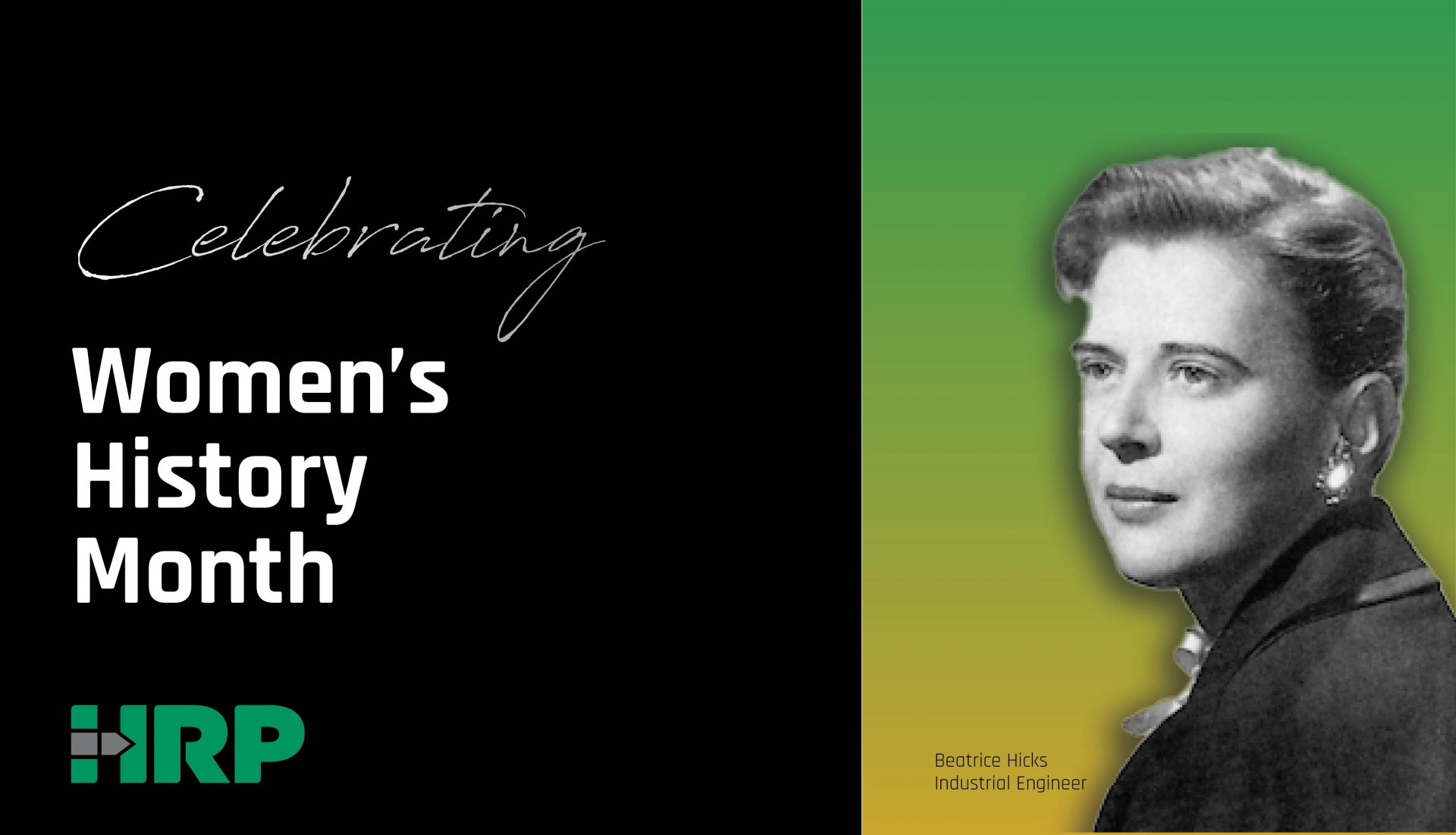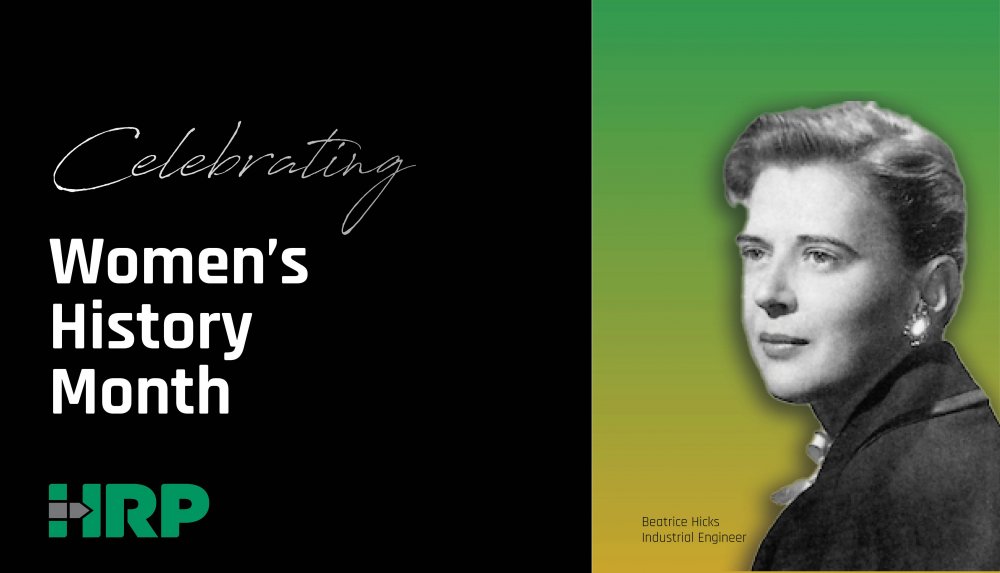Women's History Month
March 12th, 2024

During Women's History Month, it's important to recognize the remarkable contributions of women who defied societal norms and carved out their paths in male-dominated fields. One such trailblazer is Beatrice Hicks, a pioneering industrial engineer whose legacy continues to inspire generations.
Beatrice Hicks was born in 1919, a time when women's roles in society were often confined to domestic duties. Inspired by triumphs in engineering like the Empire State Building and George Washington Bridge, she told her father at age 13 that she wanted to follow in his footsteps and become an engineer. Despite Classmates and teachers alike trying to dissuade her from pursuing this path, Hicks persevered and graduated from the Newark College of Engineering (now New Jersey Institute of Technology) in 1939, becoming one of the first female engineers in the United States. She was one of only two women from a class of 900.
In 1949, she would go on to earn a master’s degree in physics from Stevens Institute of Technology. Following her father's passing in 1946, she became the vice president and director of engineering at Newark Controls Co., a metalworking firm that her father had founded. At Newark Controls, she developed a gas density sensor for devices that used gas-phase materials as fuels or insulators. Crucially, this device was able to sense the actual amount of gas, instead of just the pressure produced by the gas, in a container over a wide range of pressures and temperatures. The gas density switch was later used in the U.S. space program, including in the Moon landing.
Throughout her career, Hicks broke barriers and shattered stereotypes. She co-founded the Society of Women Engineers (SWE) in 1950, providing a platform for women engineers to connect, collaborate, and advocate for their profession. Her leadership and dedication laid the foundation for countless women to pursue careers in engineering and related fields.
Hicks's contributions to industrial engineering were profound and wide-ranging. She specialized in acoustics and pioneered advancements in sound measurement and control. Her work was instrumental in improving workplace safety and productivity, as well as enhancing the quality of life in urban environments. Hicks's research and innovations continue to have a lasting impact on various industries, from manufacturing to transportation.
Beyond her technical expertise, Hicks was a champion of diversity and inclusion in the engineering profession. She advocated for equal opportunities for women, recognizing the importance of diverse perspectives in driving innovation and progress. Her advocacy laid the groundwork for greater representation and diversity within the engineering community.
Beatrice Hicks's legacy serves as a beacon of inspiration for aspiring engineers, particularly women, who dare to challenge conventions and pursue their dreams. Her courage, resilience, and pioneering spirit continue to resonate today, reminding us of the limitless potential of women in STEM.








